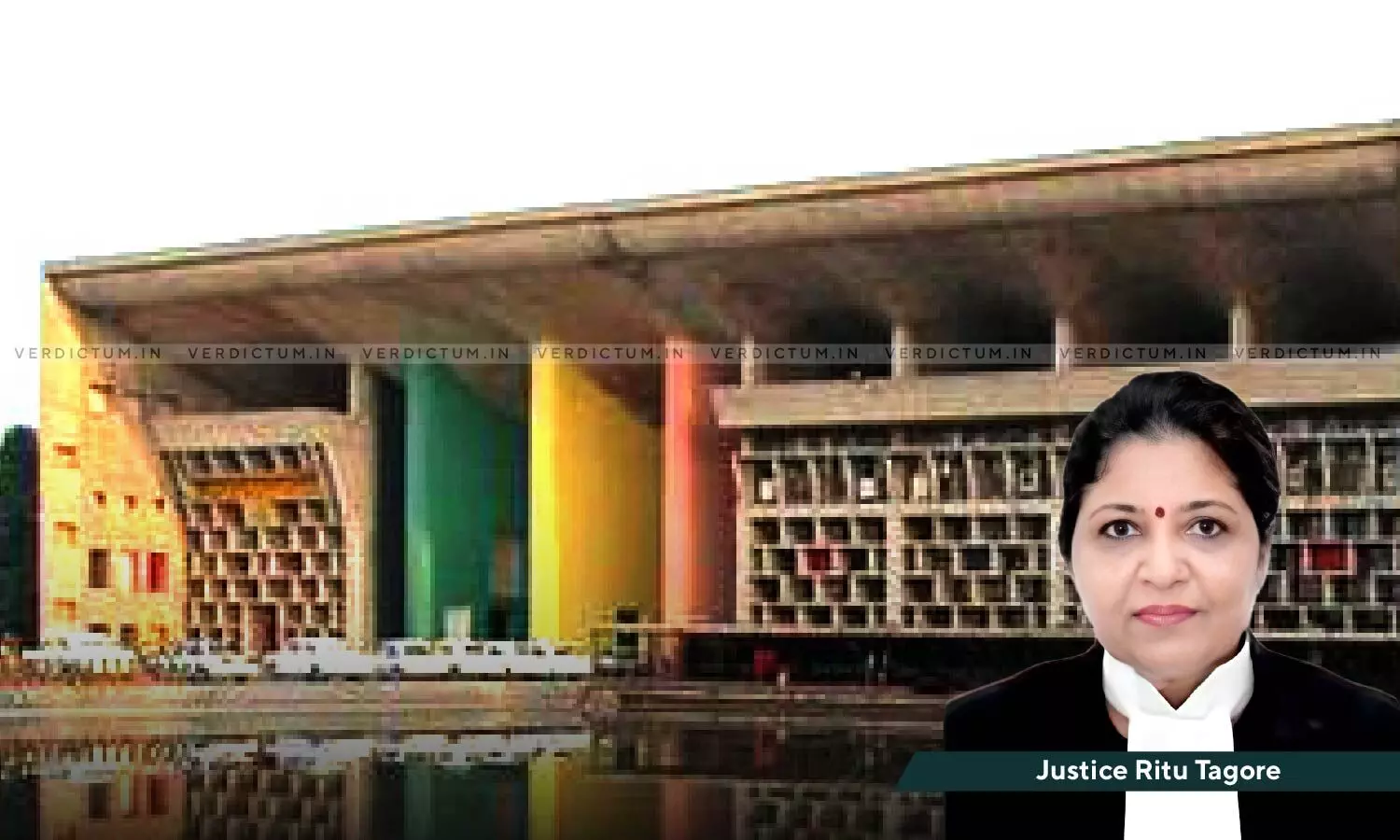
Motor Vehicle Accident Cases Calls For ‘Just Compensation’ So As To Place Victim In Position As He Was In Before Occurrence Of Accident: P&H HC
 |
|The Punjab and Haryana High Court recently directed the Respondent Insurance company to pay to the claimant an enhanced amount of compensation of Rs.2,38,600 over and above the compensation amount as awarded by the Tribunal, at the rate of interest as granted by the Tribunal from the date of filing of the claim petition till its realization.
While partly allowing an appeal preferred by the Appellant/ Claimant against the compensation granted to her by the Motor Accident Claims Tribunal, a Single-Judge Bench of Justice Ritu Tagore observed that "the principle essentially followed by the Courts in assessing motor vehicle compensation claims is to grant ‘just compensation’ which include all elements that would go to place the victim in as near a position as she or he was in before occurrence of the accident".
The Court also added, "It is true that no amount of money or material compensation can renew a physical frame that has been bettered in accident, however, some measure by way of restitution in form of monetary compensation can be provided to those who survive or the victims who have to face their lives."
Advocate Gagan Inder Singh appeared for the Appellant, whereas, Advocate Madhu Sharma appeared for the Respondent.
Going by the background of the case, the Claimant-injured (Himanshi) was on the pillion ride of the scooter of her friend, when they were involved in an accident near Chandigarh. The accident was caused by the first Respondent, who was driving the offending vehicle, a Swift car, in a rash and negligent manner. Claimant and her friend sustained multiple serious injuries, as a result, the FIR registered under Sections 279, 337 and 338 of IPC. Later, the Claimant filed a petition under Section 166 of the Motor Vehicles Act seeking compensation of Rs.1178,15,500 along with 24% per annum interest from the Respondents, jointly and severally.
The MACT (Motor Accident Claims Tribunal) concluded that the accident was caused by the first Respondent driving the offending vehicle in a reckless & negligent manner. Accordingly, the Tribunal awarded the compensation of Rs.3,68,077 along with 6% interest per annum from the date of filing of the claim petition. The Tribunal also directed the insurance company to make the payment to the Claimant as a priority and gave recovery rights to the third Respondent to recover the compensation from the first and second Respondents.
After considering the submissions, the High Court noted that the disability certificate indicated that claimant was assessed having 24% permanent physical disability on account of locomotor disability due to post-traumatic deformity in her left hand and the same was considered progressive and unlikely to improve, in addition to the medical board recommendation regarding reassessment of disability after three years.
Finding that the disability was limited to left hand and not her entire body, the Court held that it was appropriate to consider a functional loss of 20% due to the progressive nature of disability to the claimant.
The Bench further noted that the Tribunal had failed to note this important fact when assessing the loss of income due to disability and did not account for the functional loss that the claimant would suffer as a result of her physical disability, the Court further noted.
“The claimant did not provide evidence of reassessment of her disability as recommended by the medical board while preparing her disability certificate. Nonetheless, the progressive nature of claimant’s disability must still be taken into account. It should be noted that the disability is limited to left hand and not her entire body. Therefore, it is appropriate to consider a functional loss of 20% due to the progressive nature of disability to the claimant”, added the Bench.
In furtherance of the same, the High Court stated that the process of determining compensation is essentially a very difficult task and can never be an exact science. Perfect compensation is hardly possible, particularly in claims of injury and disability.
“The Motor Vehicle Act is a beneficial piece of legislation. The principle essentially followed by the Courts in assessing motor vehicle compensation claims is to grant ‘just compensation’, which include all elements that would go to place the victim in as near a position as she or he was in before the occurrence of the accident.”, added the Court.
Therefore, noticing the compensation under the head of ‘pain and suffering’ category is relatively lower considering the nature of injury sustained; the medical treatment/surgery undergone by the claimant and the impact on the claimant’s prospects for marriage, the High Court directed the Respondent-insurance company, to pay to the claimant an enhanced amount of compensation over and above, the compensation amount as awarded by the Tribunal, at the rate of interest as granted by the Tribunal from the date of filing of the claim petition till its realization.
Cause Title: Himanshi v. Ranjit Singh and Ors.
Click here to read/download Order